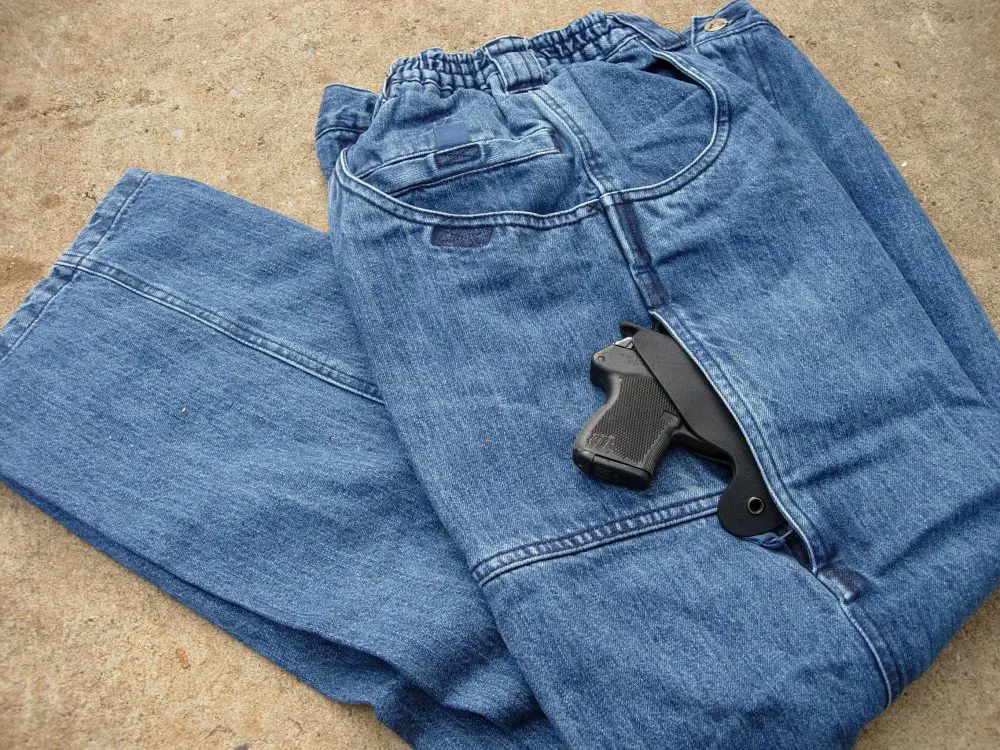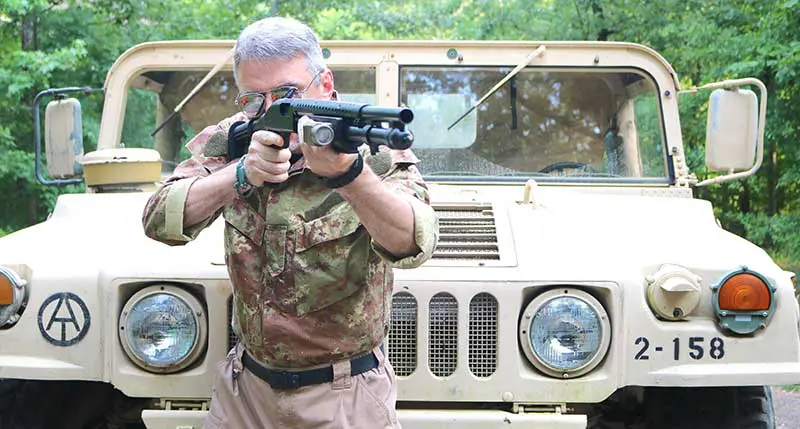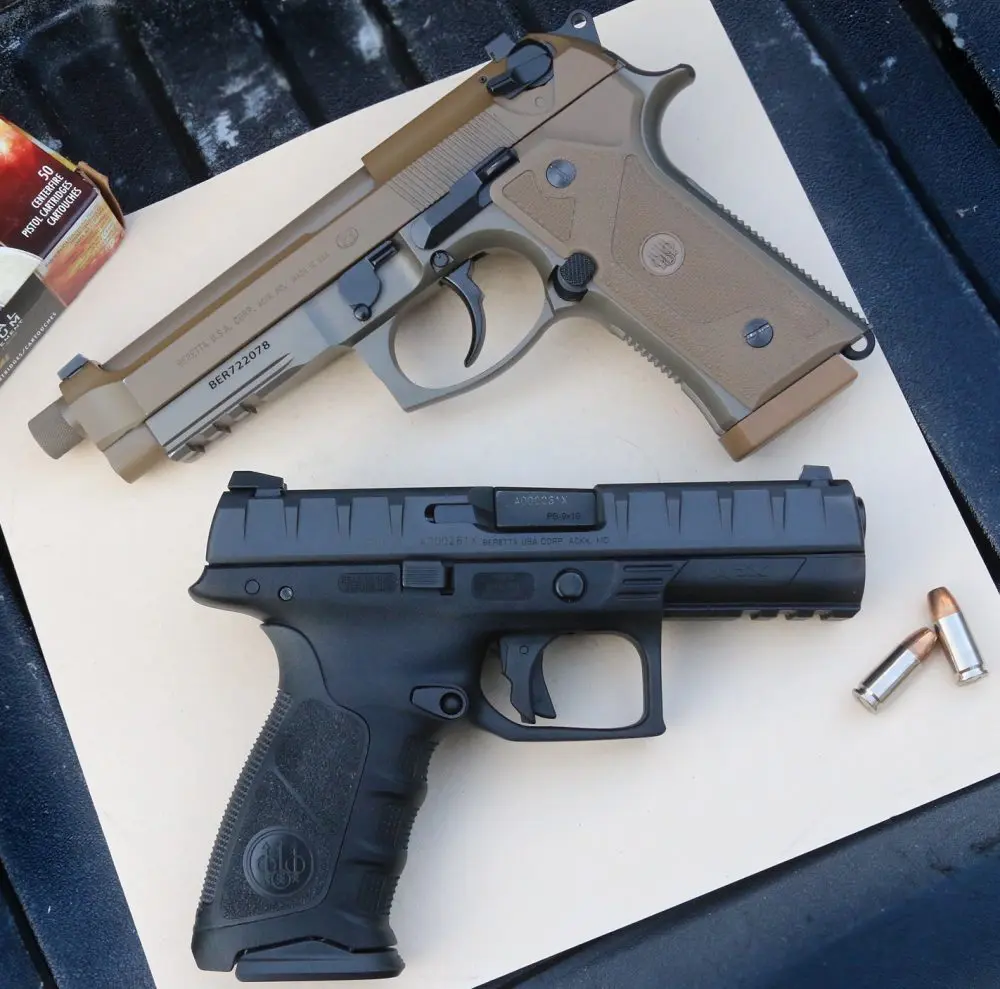If you’ve ever wanted to watch a gun writer get angry, you should have been with me two days ago at the security checkpoint for a major event.
With wisdom gained from countless hours spent manning and planning similar security posts, I somehow managed to keep my rage hidden while undergoing the exceptionally lax screening. Later, while walking around muttering under my breath about the humiliating and ineffective process, I realized it might be a good time to share some observations about this increasingly common part of everyday life.
Here’s a hard truth: Many checkpoints are a psychological and public-relations sham, the case above serving as a perfect example. After showing my badge and ID, I was still directed to secure my firearm in my vehicle.
I then went through a metal detector that wasn’t set off by my belt buckle, cell phone, or keys, while at the same time my backpack, which contained all sorts of suspicious-looking objects, was passed through the screening area literally uninspected! I could have carried in an artillery shell without fear of detection.
In other words, this entire “dance” was a pointless, intrusive show so those in charge could claim they were “taking reasonable precautions” if there was ever a security incident.
Why do such asinine things happen? Because achieving any measure of true security is invasive, and our citizenry wants safety without personal inconvenience. I don’t want to live in a world where TSA-style searches are the norm, but the public needs to realize that anything else is a waste of time and resources.
Unfortunately, too many people feel “safer” after such faux checkpoints, so they continue to proliferate. But regardless of the tragically misguided nature of most security screening, I’ll stop ranting about policy issues and talk about your behavior at a checkpoint.
Above all, realize it is “Their House” and you absolutely will not, under any circumstances, win an argument. Checkpoints are staffed by low-level personnel who have been given clear-cut instructions, and those rules are expected to be followed under all circumstances and without question.
Deviations are verboten, and anyone who doesn’t behave like a sheep will be dealt with quickly, often by a supervisor who may or may not be reasonable.
Speaking from experience, the people who staff checkpoints listen to complaints all day, so they are completely immune and usually brusque regarding comments, questions, or mistakes. If you do need something, the only method that does sometimes work is killing them with kindness and charm.
Smile, be self-deprecating (even if it isn’t warranted), and apologize for your question, comment, or lapse. Even though your smile is a mask, there are times when a tactical charm offensive will pivot the other person enough to get you a favor or out of minor trouble.
I used this technique after almost boarding an aircraft with an undeclared firearm. At the security checkpoint, I had (politely) argued about proper procedures for flying armed as a law enforcement officer, and was waved through by the bored and apparently untrained guard.
My bad feeling was realized shortly thereafter when I saw a phalanx of “suits” with clipboards and walkie-talkies, along with a couple of uniformed cops, walking my way.
Apologizing and being exceptionally polite, I explained the situation and my own certainty that the security officer had made a big mistake. After some huddled conversations and radio traffic, I got the stern “Don’t do that again!” lecture before the group walked away to presumably fire someone.
I hadn’t done anything wrong but I’m certain a rotten (but justified) attitude on my part would have made the situation much worse, at least in the short term.
If you do start through a checkpoint and realize you possess a weapon, calmly stop and politely address the nearest security personnel. You might still be in some kind of trouble, but don’t make it worse by panicking, running, getting surly or, heaven forbid, pulling out the weapon in an effort to demonstrate, “Oops, I forgot!”
Learn the security procedures in place before visiting any public building or event, though it’s often a challenge to find such information. That’s why you should carry a lockable weapon storage system in your vehicle at all times. When facing an unexpected checkpoint as I did, at least your gun will be safe in an anchored steel lockbox.
Don’t be tempted to carry a weapon through the checkpoint, even a checkpoint staffed by inattentive, mouth-breathing yokels. I won’t admit doing such a thing, but in hindsight, such a stunt is never worth the potential trouble.
We now arrive at the ultimate truth regarding today’s ever-increasing number of security checkpoints: They’re unavoidable and frequently senseless, so just assume ahead of time you’ll be unarmed but at risk in public places or events. With such predicaments becoming more common, the only real answer is my own simple go-to emergency plan when stuck among the maddening crowds: quickly, immediately, and unswervingly un-ass the area.
Such a response is demonstrably better for your survivability than trying to “stand and fight” with an enemy that might be numerically superior and better armed. Just be ready to run, first-est and fastest, when the feces hits the rotating air movement device.
It ain’t tactically sexy and it doesn’t seem “warrior-like,” but it’s considerably better than being a dead almost-hero.
Brent T. Wheat is a former SWAT officer, canine handler, detective, and patrol supervisor who retired after a 30-year law enforcement career. Brent is the publisher of WildIndiana Magazine, a regionally focused outdoor magazine. He can be reached at [email protected].



